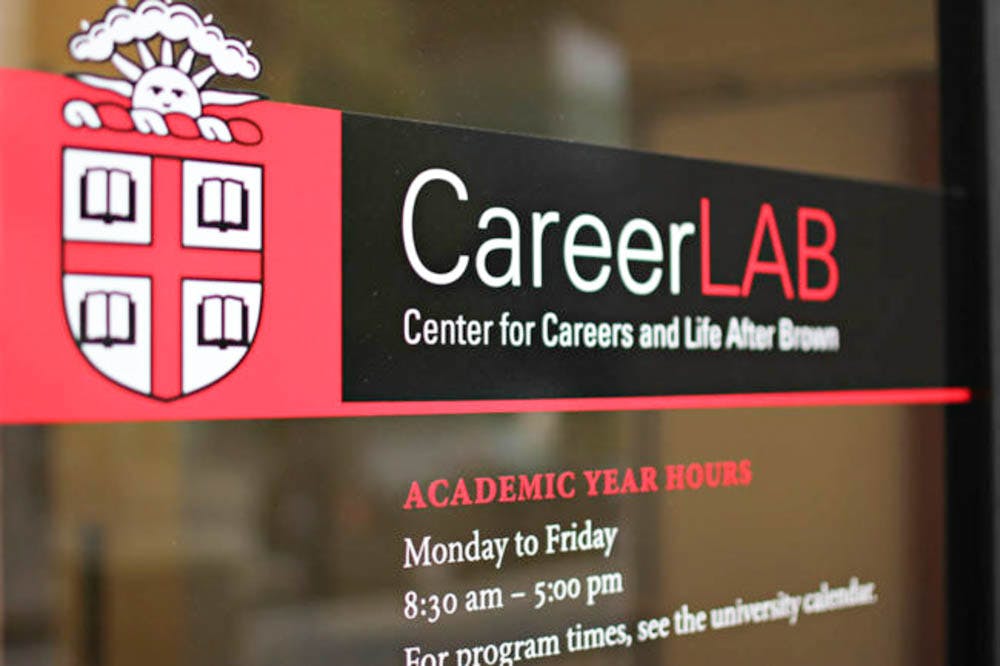For many students who identify as LGBTQ+, the prospect of leaving the University after graduation comes with concerns of losing a supportive community and entering an unwelcoming work environment, said Je-Shawna Wholley, assistant director of the LGBTQ center. To help ease these concerns, CareerLAB and the Center hosted the second ever LGBTQ+ CareerCon at the Faculty Club Saturday.
The event, titled “OUT at Work: Staying True to Self in the Workplace,” focused on showing students that “it’s not impossible to be your full and authentic self and still find a job that you enjoy,” Wholley said. Matthew Donato, director of CareerLAB, added that the LGBTQ+ CareerCon aimed to help students learn “how to take your identity and not have that be a barrier to the career path you want to pursue.”
Alums and other professionals who belong to the LGBTQ community joined students for a day of networking, panel sessions and group discussions. Wholley said she hoped students would gain “concrete skills and insight on how to navigate the job search, how to navigate the interview process and how to find mentorship and community” in their interactions with “professionals who are out in the workplace.”
People who identify as LGBTQ+ may be unsure whether they should reveal their identity while applying for jobs, Bill Barnert ’78 explained in a group discussion titled “Queer in STEM: A Conversation with LGBTQ+ STEM Professionals.” On the one hand, job applicants may want to make sure they’ll be accepted at work, but on the other, they may fear judgement or discrimination, Barnert added. But employers might find out about job applicants’ identities regardless. “If you Google my name, you find out two things about me,” Barnert said. “One, I’m the only person with my name, and two, I’m gay.” Further, by including any involvement with LGBTQ+ community groups on resumes, “you automatically out yourself,” Barnert added.
Although he noted that “navigating the professional world … is different for everyone,” Barnert said he has typically been open about his identity throughout his career in software engineering and design. “I couldn’t be someone different at home and at work,” he said. “I don’t know how to do that.”
But some people are not so comfortable sharing their identities in the workplace. Jon Kaye ’95, who spent several years as a geobiology researcher, said in the same group discussion that “there’s a bit of a code of silence going on in STEM fields. There are queer people, but they’re not all out.”
“STEM does not have the best reputation of being the most inclusive space,” Wholley told The Herald. Around 70 percent of students who registered for the event were STEM concentrators, she said.
Barnert noted that two of the biggest companies he has worked for, IBM and Teradyne, lacked queer communities. “In both companies … I helped make (a queer communtiy) happen,” he said. “If the support isn’t there, you can find it, or you can make it.”
“Ultimately, you have to be the change you envision,” Kaye agreed.
Gabriel González ’20 MD ’24, who attended the CareerCon, told The Herald that the event taught him he must “lift while climbing” as he enters the professional world. “As queer and trans people of color keep fighting the fight, it’s important to continue forming communities,” he said.
González added that “it is validating” to meet queer and trans alums and professionals who have built successful careers. “There is hope,” he said.
The LGBTQ+ CareerCon marked the first of a series of four CareerCons that CareerLAB has planned for the coming month, including events geared toward international students, first-generation college students and students interested in policy, Donato said. “We want to make sure we are helping specific groups of students who have specific needs and concerns about entering the workplace.”





